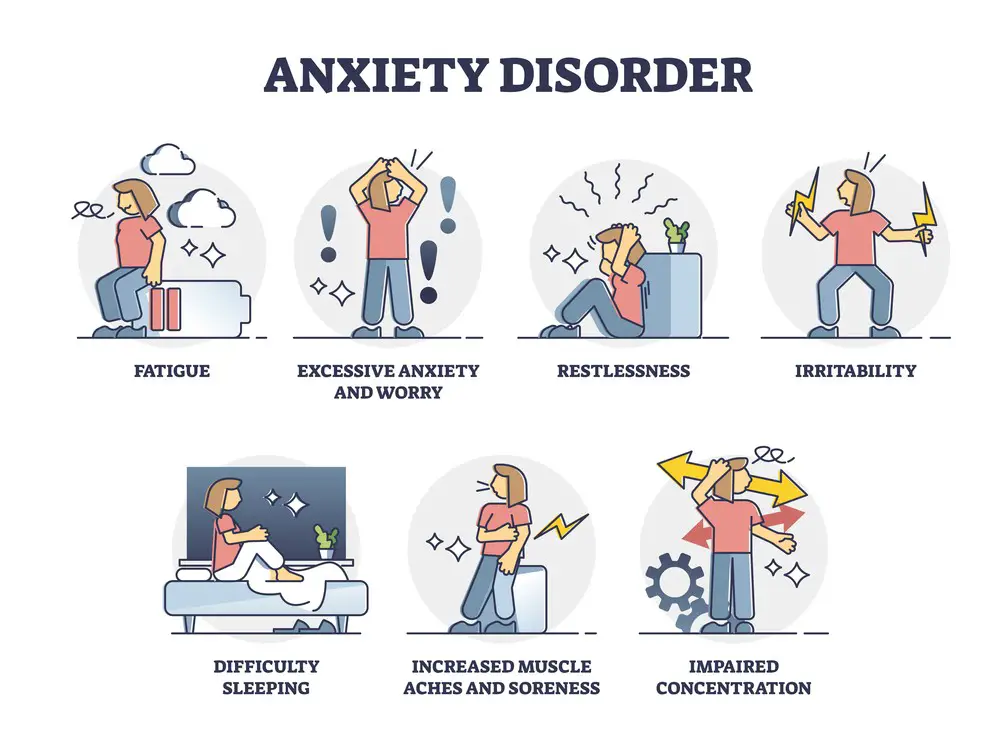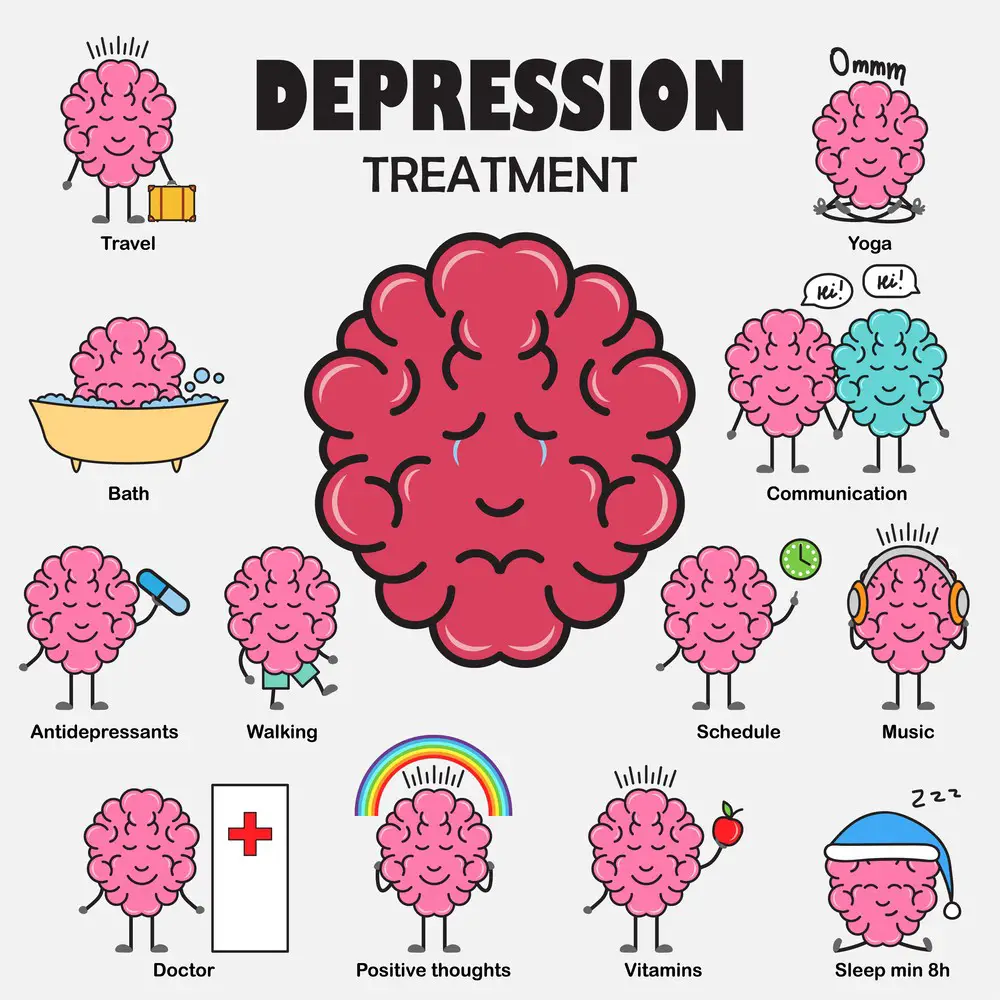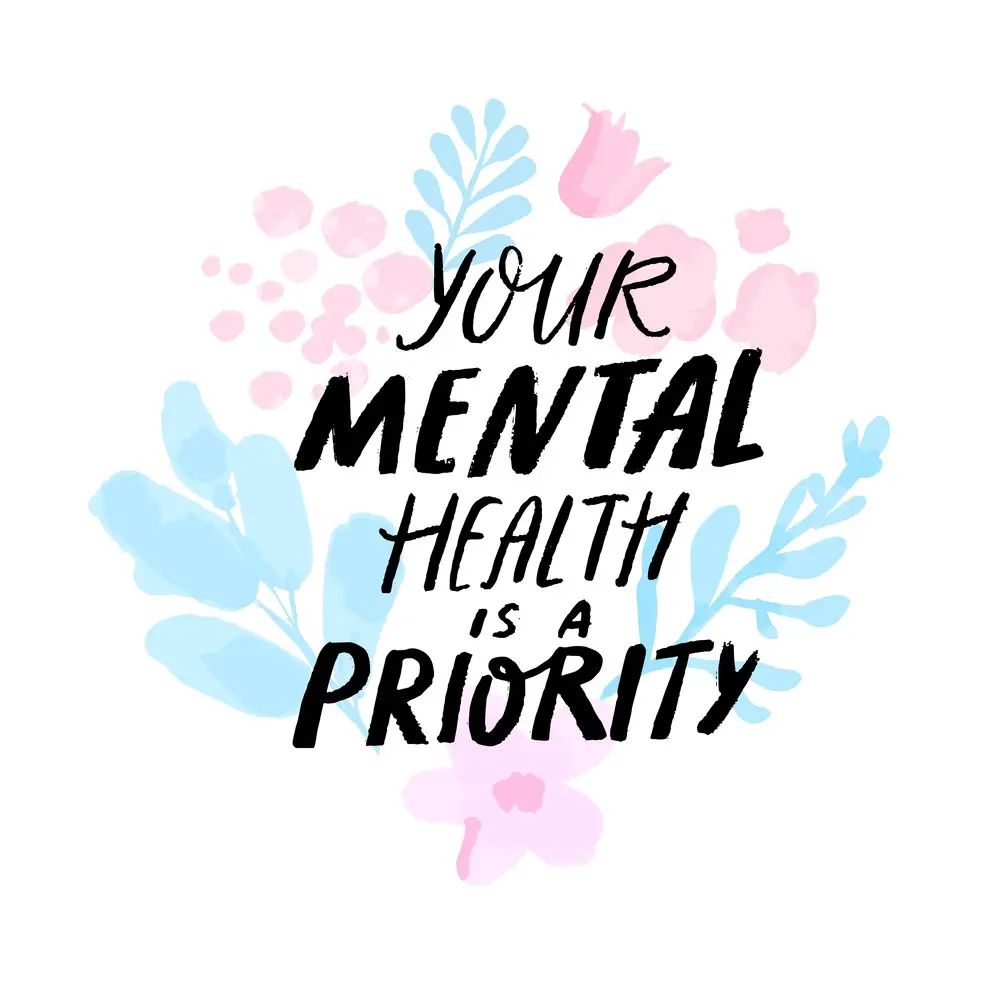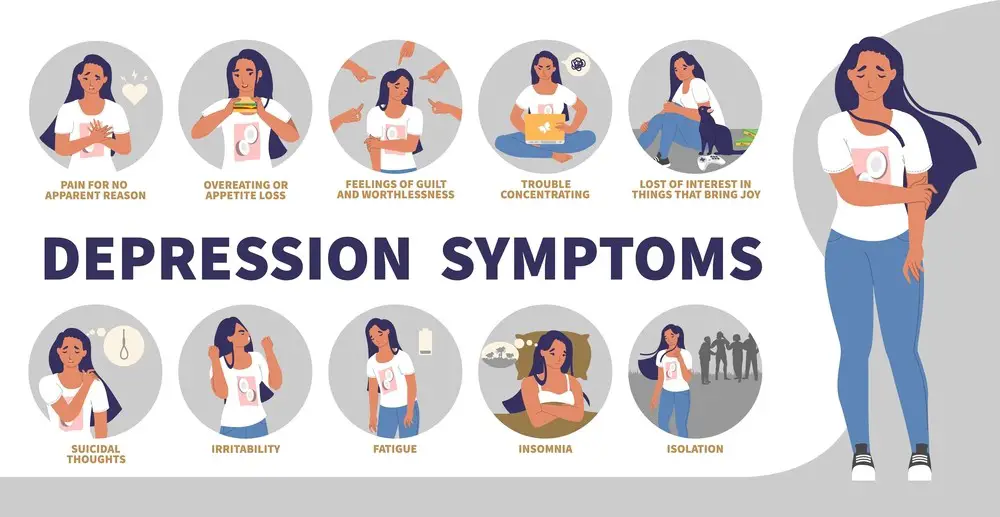As a BetterHelp affiliate, we receive compensation from BetterHelp if you purchase products or services through the links provided
Sexual trauma is an all too common experience that can deeply impact a person’s emotional and physical life. It can happen to anyone, regardless of age, gender, or background, and can leave lasting effects that make it challenging to move forward. Understanding sexual trauma, its symptoms, and the various therapeutic approaches available to assist those affected is crucial to fostering healing and personal growth.
For survivors of sexual trauma, the journey toward healing can be complex and emotional. Finding the right therapist and treatment approach is vital to this journey, as it can provide a safe space to explore feelings, develop coping mechanisms, and work through the trauma. There are various therapy modalities specifically designed to address sexual trauma, ranging from traditional talk therapy to more specialized approaches tailored to each individual’s needs.
Key Takeaways
- Sexual trauma affects people of all demographics and requires understanding and therapy for healing.
- Various therapeutic approaches offer support tailored to individual needs and experiences.
- Building support networks and resources aids in long-term recovery and managing the effects of sexual trauma.
 Understanding Sexual Trauma
Understanding Sexual Trauma
Sexual trauma is a deeply distressing experience that affects the survivor’s mental and emotional well-being and their sense of self, relationships, and physical health. It’s important to recognize how sexual trauma can manifest in various ways, such as sexual assault, rape, incest, sexual abuse, harassment, or groping.
As you learn about the complexities and effects of sexual trauma, it’s crucial to understand that trauma occurs when an individual experiences an event—like sexual violence—that overwhelms their ability to cope. These events are typically unexpected and involve a real or perceived threat to the survivor’s safety or the safety of someone close to them.
Understanding the effects of sexual trauma can help in the healing process for survivors, and it’s essential to recognize that each person’s experience is unique. Some common effects of sexual trauma can include anxiety, depression, flashbacks, sleep disturbances, and difficulties with trust and relationships. It’s also important to note that not all survivors experience immediate or pronounced symptoms; sometimes, the impact reveals itself over time or after a triggering situation.
Consent plays a vital role in sexual experiences, and withholding consent is crucial when defining sexual trauma. Assaults or abusive behaviors that transgress a person’s expressed boundaries and are forced upon them—without consent—are considered traumatic events. It’s crucial to reinforce the importance of communication, respect, and consent in all relationships to prevent potential harm.
When seeking treatment and support, survivors of sexual trauma must have a safe space to express their feelings, thoughts, and concerns. Everyone’s healing journey is personal, and it might involve various types of therapies and strategies. Recognizing the many forms of sexual trauma and its effects can be vital in helping survivors regain control of their lives and prevent further trauma for others.
 Symptoms of Sexual Trauma
Symptoms of Sexual Trauma
Experiencing sexual trauma can leave lasting effects on your mental and physical well-being. It’s essential to recognize the signs and symptoms associated with sexual trauma so that you can seek the necessary help and support. Here are some common symptoms you might experience after a traumatic event:
Anxiety and Depression: You might feel constant worry, uneasiness, and sadness after experiencing sexual trauma. These feelings can be overwhelming and impact your daily life significantly.
Post-Traumatic Stress Disorder (PTSD): Sexual trauma can lead to the development of PTSD. Symptoms of PTSD include flashbacks to the traumatic event, nightmares, and hypervigilance.
Avoidance and Withdrawing: You may find yourself avoiding places, people, or situations that remind you of the trauma. This avoidance can lead to social isolation, further impacting your mental health.
Physical symptoms may also arise. Some common physical evidence of sexual trauma includes:
- Pain: You might experience chronic pain, especially in areas related to the trauma.
- Sleeping difficulties: Trouble falling asleep, staying asleep, or experiencing restless sleep can occur.
- Outbursts: Unexpected emotional outbursts, such as episodes of intense anger, can be a sign of unresolved trauma.
Psychological signs of sexual trauma can be quite diverse. Some examples include:
- Fear: An intense or irrational fear of certain situations, people, or objects may develop.
- Shame: You might feel a strong sense of shame, guilt, or self-blame related to the trauma.
- Dissociation: You may experience moments where you feel disconnected from yourself or your surroundings, a phenomenon known as dissociation.
Recognizing these symptoms in yourself or a loved one is the first step to healing and recovery. It’s important to seek professional help when dealing with the aftermath of sexual trauma, as specialized therapists and support groups can provide the necessary resources to overcome these challenges. Remember, you are not alone, and help is available.

Effects on Different Demographics
Sexual trauma can impact individuals from all walks of life, including men, women, and children. The effects of trauma can be profound, particularly if they’re not properly addressed in therapy. It’s crucial to understand how sexual trauma can uniquely influence each demographic.
Men: Often, men may feel the stigma surrounding sexual trauma can prevent them from seeking help. You need to understand that men can also be victims of sexual assault, and facing these issues head-on can help initiate the healing process.
Women: Sexual trauma can have long-lasting effects on women’s lives, relationships, and self-esteem. They may struggle with feelings of guilt, shame, and anger. You must seek therapy and support to heal and regain a sense of empowerment.
Children and Adolescents: It can be especially difficult for young victims to deal with the effects of sexual trauma. These individuals may be at a greater risk for developing emotional, behavioral, and mental health challenges as they grow up. If you’re a caregiver, supporting and encouraging the child or adolescent in seeking appropriate therapy and intervention is vital.
Girls: Young girls who have experienced sexual trauma may experience difficulties with self-esteem, relationships, and trust. You need to help them develop a sense of self-worth and provide a safe space for healing.
Adults: The impact of sexual trauma on adults can be far-reaching, affecting their personal and professional lives. When seeking therapy, you need to prioritize self-care, healthy coping mechanisms, and the establishment of strong support networks.
Military: Military members are not immune to the effects of sexual trauma. The unique environment they are in and the expectations of resilience can make seeking help a challenge. Remember that finding specialized therapy and support is crucial in this case.
Race: Victims of sexual trauma from racial or ethnic minority groups may face additional barriers to accessing appropriate therapy and support. As a victim or a therapist, it’s essential to be aware of cultural competence and focus on the unique needs of patients from diverse backgrounds.
By understanding the distinct implications of sexual trauma on different demographics, you can better support yourself or those around you in finding appropriate therapeutic interventions. Each individual’s journey to healing will be unique; it’s important to remember that help is available and there is light at the end of the tunnel.

Therapy and Healing
Types of Therapy
There are various treatments available for addressing sexual trauma. Each person’s journey to healing and recovery is unique, so it’s important to explore different options to find the best fit for your needs. Here are some common types of therapy used for this purpose:
- Psychotherapy is a general term for several therapeutic approaches involving talking with a mental health professional to address emotional, psychological, and behavioral issues.
- Cognitive Behavioral Therapy (CBT) focuses on identifying and changing negative thought patterns and behaviors related to the trauma.
- Trauma-Focused Cognitive Behavioral Therapy (TF-CBT): A specific form of CBT designed to help individuals process and cope with traumatic experiences.
- Eye Movement Desensitization and Reprocessing Therapy (EMDR): This treatment uses a structured approach and eye movement techniques to help you process traumatic memories and reduce distress.
- Psychodynamic Therapy: This approach delves into unconscious feelings and past experiences, exploring how they influence your present-day behavior, feelings, and thinking patterns.
 Building a Therapeutic Relationship
Building a Therapeutic Relationship
A crucial aspect of sexual trauma therapy is the therapeutic relationship, built on trust, respect, and rapport between you and your therapist. It is essential to feel comfortable with your therapist and trusting in their ability to guide you through your healing journey. To build a strong therapeutic alliance, consider these tips:
- Explore different therapists: Don’t be afraid to meet with multiple therapists before choosing the right one. The connection and fit can greatly impact your recovery process.
- Communicate openly: Share your thoughts, feelings, and concerns as openly as possible. This helps your therapist understand your needs and tailor the treatment accordingly.
- Set goals together: Collaborate with your therapist to set achievable, realistic goals focusing on short-term and long-term aspects of your recovery.
- Give feedback: Tell your therapist about any concerns or disagreements with the treatment or if something isn’t working for you. Honest feedback helps maintain a healthy therapeutic relationship.
- Commit to the process: Regular attendance, session engagement, and follow-through on homework or activities outside of therapy are key factors in building a successful therapeutic relationship.
Therapy can be essential to your healing journey, but it’s not a one-size-fits-all process. Explore different treatments and therapists, and be patient with yourself as you work towards recovery.

Additional Coping Mechanisms
Dealing with sexual trauma can be overwhelming, but it’s important to remember that many coping mechanisms aid in your healing process. In this section, you will find various tools and strategies to help you feel safe, grounded, and in control of your emotions.
To start, safety should be a priority in your recovery journey. Surrounding yourself with a support system of trusted friends and family members and considering professional help can provide a sense of security. By confiding in people who listen and understand, you’ll feel less isolated and more empowered as you heal.
Grounding techniques are essential in returning to the present moment and avoiding triggers. Some common methods include:
- Deep breathing exercises
- Connecting with your senses (e.g., feel the texture of your clothes, breathe in the scent of a calming essential oil)
- Reciting a mantra or positive affirmations to yourself
Mindfulness practices, such as meditation or yoga, can help you to develop self-awareness and learn how to manage your emotional responses. By focusing on your breath and staying present in the moment, you can train your body to calm the emotional reactions tied to your trauma.
Regular exercise can also improve your mental health and overall well-being during your healing journey. Exercise doesn’t need to be intense—a daily walk, yoga, or stretching can be a great way to release stress and build resilience.
Lastly, consider these additional strategies for coping:
- Keep a journal to express your emotions and track your progress.
- Try creative outlets like painting, writing, or playing an instrument to express and explore your feelings.
- Engage in hobbies and activities you enjoy to regain control and confidence.
Exploring these coping mechanisms allows you to develop a personalized approach supporting your unique healing journey. Be patient with yourself, and remember to honor your experiences as you work towards recovery.
Support Networks and Resources
When dealing with sexual trauma, having a strong support network and access to various resources to aid in your healing process is essential. A good place to start is reaching out to family members and friends who can provide empathy, understanding, and encouragement on your journey to recovery.
Support Groups offer a safe space for survivors to share their experiences, feelings, and coping strategies. These groups consist of individuals who have gone through similar situations, allowing you to connect and find strength in each other’s stories. Many support groups are available, both online and in-person, catering to different preferences and needs.
Your community can also provide valuable resources and connections that can help you on your healing journey. Local organizations often host support groups, workshops, or seminars on sexual trauma and recovery. Additionally, community centers and faith-based groups may offer counseling and emotional support.
Centers for Disease Control and Prevention (CDC) is another valuable resource that can provide information and guidance on sexual trauma and related issues. The CDC offers a National Intimate Partner and Sexual Violence Survey, which supplies vital data and insights on the prevalence of sexual trauma, its impact, and the importance of prevention initiatives.
In summary, seeking support from family, joining support groups, engaging with your community, and utilizing resources provided by the CDC can all contribute to a healthier and more supported healing process. Remember, you’re not alone in this journey; several resources are available to help you.

Long-Term Implications and Management
Living through sexual trauma can have deep-rooted, long-lasting consequences on your life. It’s important to consider the long-term implications of surviving sexual trauma and develop strategies to manage them.
One of the primary areas affected by sexual trauma can be your interpersonal relationships. Trusting others, opening up, and maintaining healthy boundaries can be challenging after experiencing such a deeply personal violation. These challenges can extend to both personal and romantic relationships as you navigate the complex feelings of vulnerability that emerge.
For your mental health, there might be consequences such as anxiety, depression, post-traumatic stress disorder (PTSD), and other mental disorders. Your eating habits might also be affected – some survivors may develop eating disorders due to sexual trauma.
In addition, your dreams and fantasies may reflect the trauma you’ve experienced. You might have recurring nightmares or memories that can severely impact your sleep and overall well-being.
Another aspect that can be affected is your sexual life. Sexual dysfunction might surface, including a lack of desire, trouble achieving orgasm, or experiencing pain during intercourse. These sexual challenges can contribute to a strained relationship with yourself or your partner.
To manage these long-term implications, here are some approaches you can consider:
- Therapy: Engage in therapy and counseling specific to sexual trauma. A trained professional can help you work through the complex emotions and challenges associated with your experience.
- Support Groups: Join a support group with other survivors to create a sense of community and understanding. Sharing experiences can be a powerful tool for healing.
- Boundaries: Set healthy boundaries in your relationships and communicate openly about your needs. Let others know what makes you feel comfortable and safe.
- Self-Care: Prioritize emotional and physical self-care. Engage in activities that make you feel happy, healthy, and empowered.
- Educate Yourself: Learn about the long-term consequences of sexual trauma so you know what to expect and how to address these challenges.
By understanding the long-term implications of sexual trauma and implementing effective management strategies, you can work towards a healthier and happier future.
 Supporting Someone Through Sexual Trauma
Supporting Someone Through Sexual Trauma
When someone you care about is navigating the difficult path of recovering from sexual trauma, it’s often hard to know how to help or what to say. Your support, however, can be a vital part of their healing process. Here’s how you can be there for them in a meaningful way:
- Listen Without Judging: Sometimes, a survivor needs a non-judgmental ear. Let them share their feelings without offering solutions unless they ask for advice.
- Respect Their Boundaries: Everyone’s healing journey is different. Some may want to talk openly about their experiences, while others may need space. Always respect what they’re comfortable with.
- Be Reliable and Consistent: The journey to recovery can be long and arduous. Your consistent support can offer a sense of stability.
- Encourage Professional Help: While your support is invaluable, professional therapy is crucial. Encourage them to seek help, but don’t push if they’re not ready.
- Educate Yourself: The more you know about sexual trauma and its impact, the more effectively you can offer support. Read up on the subject, and consider joining a support group for loved ones of survivors.
- Check-In Regularly: Sometimes, the most meaningful support act is asking, “How are you today?” A simple check-in can remind them they’re not alone.
Being supportive doesn’t mean you need to have all the answers. Your presence, understanding, and willingness to help in any way you can are often more meaningful than any “right” thing you could say or do.

Fighting Stigma and Changing Perceptions
It’s time to tackle the stigma surrounding sexual trauma therapy. As a society, we must create safe environments where survivors can feel comfortable sharing their experiences. Remember, you play a vital role in this process.
Victim-blaming is an unfortunate reality, but it’s essential that you, as an ally, take a stand against it. Encourage empathy and understanding by:
- Listening carefully and with an open mind
- Not interrupting or questioning the survivor’s truth
- Expressing support and validating their feelings
Isolation is another hurdle faced by many survivors. Here are a few ways you can help combat this problem:
- Invite them to join support groups
- Offer to accompany them to therapy sessions
- Be available, but respect their space and boundaries
Establishing a nonjudgmental atmosphere is crucial to breaking down societal barriers. Keep this in mind:
- Be patient; everyone’s healing journey is different
- Avoid sharing opinions on how “they should have” reacted
- Focus on their well-being rather than the details of the event
Finally, working towards a better perception of trauma survivors starts with you:
- Educate yourself and others on the reality of sexual trauma
- Encourage open dialogue and destigmatize the topic
- Promote positive images of healing and resilience
By adopting these strategies, you actively combat stigma and support the healing process for survivors of sexual trauma. It’s important to remember that change begins with one person – make your impact count.
 Signs That Therapy Is Needed
Signs That Therapy Is Needed
The first crucial step toward recovery is recognizing when it’s time to seek professional help. Here are some signs that therapy may be necessary:
- Persistent Emotional Distress: Ongoing sadness, anxiety, or irritability that interferes with daily life.
- Intrusive Thoughts: Frequent, unwanted thoughts about the trauma that are hard to manage.
- Avoidance: Actively avoiding places, people, or activities that are reminders of the traumatic experience.
- Physical Symptoms: Experiencing unexplained physical issues like fatigue, headaches, or stomach problems.
- Relationship Struggles: Difficulties in forming or maintaining relationships due to trust issues or emotional unavailability.
- Functional Impairment: Struggling with work, school, or daily tasks due to emotional or psychological burdens.
Goals of Therapy
If you decide therapy is the right course of action, setting clear goals can help guide your journey toward healing. These could include:
- Emotional Regulation: Learning techniques to manage and cope with emotional distress.
- Understanding the Trauma: Gaining insight into how the trauma has affected you and learning to reframe it.
- Building Resilience: Developing strategies to handle stressors and prevent re-traumatization.
- Improving Relationships: Fostering healthier connections by working through trust issues or communication barriers.
- Personal Growth: Achieving a renewed sense of self-worth and personal strength.
Tracking Progress in Therapy
It’s important to evaluate how therapy is helping you regularly. Here are some markers of progress:
- Reduced Symptoms: Feeling less overwhelmed by symptoms like anxiety or depression.
- Improved Coping Skills: Successfully using techniques learned in therapy to manage stress and emotional ups and downs.
- Increased Self-Awareness: Gaining a deeper understanding of your thought patterns and behavior.
- Stronger Relationships: Noticing improvements in your interpersonal connections and feeling more comfortable in social situations.
- Enhanced Quality of Life: Generally feeling happier, more engaged, and able to enjoy life’s pleasures again.
Progress in therapy often comes in waves, and it’s okay if it takes time. The key is to be patient with yourself and stay committed to your healing journey.
When addressing sexual trauma therapy, exploring various sources to expand your knowledge and understanding is important. A great way to start is by looking into the following references and further reading materials:
- Research studies: Familiarize yourself with current psychotherapy research. The American Psychological Association (APA) and the National Center for PTSD can be excellent sources of information. By keeping up-to-date with the latest findings, you’ll be better informed about the most effective approaches to treating sexual trauma.
- Literature on trauma therapy: Educate yourself about the different types of therapy available for treating sexual trauma, such as cognitive-behavioral therapy (CBT), prolonged exposure therapy (PE), and eye movement desensitization and reprocessing (EMDR). Books like “Trauma and Recovery” by Judith Herman and “The Body Keeps the Score” by Bessel van der Kolk are highly recommended.
- Statistics: Make sure to grasp relevant statistics related to sexual trauma, such as prevalence, demographics, and comorbidities. This will help paint a bigger picture of the issue and may inspire you to explore new studies or research areas.
- Professional guidelines: Remember that healing from sexual trauma is complex and delicate. So, it’s important to familiarize yourself with the guidelines set forth by professional organizations like the International Society for Traumatic Stress Studies (ISTSS) and the APA. They can provide essential information on best practices and ethical considerations when working with clients who have experienced sexual trauma.
- Experts and professionals: Reach out to therapists, psychologists, and other professionals specializing in sexual trauma therapy. Connect with them through conferences, workshops, and networking events. They can provide valuable insights and first-hand experiences to deepen your understanding.
With these resources, you’re coming to a comprehensive understanding of sexual trauma therapy. Remember, continued learning is crucial to being an effective therapist or researcher in the field.
Frequently Asked Questions

What are common types of therapy for survivors?
Several types of therapy can help sexual trauma survivors, including:
- EMDR (Eye Movement Desensitization and Reprocessing)
- Trauma-Focused Cognitive Behavioral Therapy (TF-CBT)
- Attachment Therapy
- Group Therapy
These therapeutic approaches can address various aspects of trauma recovery, and your therapist will help you choose the most suitable method for your needs.
How does EMDR help in healing from trauma?
EMDR is a form of psychotherapy that aims to process traumatic memories and reduce their emotional impact. During EMDR sessions, you’ll typically:
- Recall the traumatic event while accessing bilateral stimulation, such as eye movements or tapping.
- Work with a therapist to reprocess the memory, changing your negative beliefs and emotional reactions.
EMDR can help some individuals heal faster than traditional talk therapy and has been proven effective in treating PTSD.
Can group therapy benefit sexual trauma survivors?
Group therapy offers several benefits for sexual trauma survivors, such as:
- Emotional support from people who share similar experiences
- A safe space to share your story and feelings
- Learning coping strategies and healing techniques from others
- Developing social skills and rebuilding trust
Participating in a group setting can foster a sense of belonging and help reduce feelings of isolation or shame.
How does trauma-focused CBT work?
Trauma-Focused Cognitive Behavioral Therapy (TF-CBT) is a specific form of CBT that targets symptoms related to traumatic experiences. In TF-CBT, you’ll:
- Identify and change unhelpful patterns of thinking
- Develop emotion regulation and coping skills
- Gradually face your traumatic memories in a safe environment
TF-CBT can help reduce symptoms of PTSD, depression, and anxiety in sexual trauma survivors.
What role does attachment therapy play?
Attachment therapy focuses on repairing disrupted emotional bonds, which can occur after sexual trauma. In sessions, you’ll:
- Explore your attachment style and how it relates to your trauma
- Work on understanding and addressing underlying emotions
- Practice effective communication and relationship-building skills
This form of therapy can help improve self-esteem, emotional regulation, and interpersonal relationships.
Are there alternative therapies for sexual trauma recovery?
Yes, several alternative therapies can support your healing journey, such as:
- Art Therapy: Expressing emotions through creative activities
- Yoga: Combining physical movement, breathwork, and mindfulness to heal the mind-body connection
- Equine Therapy: Interacting with horses to build trust and emotional regulation
These complementary therapies can be utilized alongside traditional therapy approaches to enhance trauma recovery.
Meet the Author: Life’s Tumultuous Tides ?
Hello there! I’m the voice behind these articles, a survivor in more ways than one. I’ve dodged the jaws of death on 9/11, worked on the 101st floor, and lost over a thousand coworkers on that fateful day.
Therapy Tribe ?
I wholeheartedly recommend BetterHelp—I’m not just an affiliate but also a client. After separating from my ex, I found myself alone in a three-bedroom apartment, haunted by the emptiness of two bedrooms that used to burst with life. BetterHelp has been a lifeline, guiding me through this emotional labyrinth.
The Tug-of-War: Custody Battles & Broken Promises ⚖️
My ex has ramped up her narcissistic behavior as the years have passed, sidelining me from my kids’ lives despite court orders. After a glimmer of hope from reunification therapy, she slammed the door on that too. She’s the living, breathing definition of a toxic narcissist, chasing community leaders and turning against them in classic smear campaigns.
Mindfulness & Medication ?
I manage my mental health with Lexapro and by being a therapy veteran. Recently, I joined the BetterHelp community. A daily ritual of long walks helps me find clarity amid the chaos.
Advocacy: The Pen is Mightier ?️
I use my experiences to fuel my writing. My mental health and narcissism articles aim to be a resource for those facing similar battles. I also run a legal site to guide those wrestling with uncooperative spouses in court. You can conquer your mental health challenges—I’m living proof.
Final Thoughts ?
If my life has taught me anything, we can adapt, survive, and thrive. Keep fighting the good fight. Life’s tough, but so are you.

- Stress Management: What is the Relationship Between Stress and Addiction? - June 28, 2024
- Exploring Techniques to Maintain a Healthy Lifestyle without Drugs - May 28, 2024
- How Acupuncture Helps Treat Chronic Fatigue Syndrome - May 28, 2024
This site contains affiliate links to products. We will receive a commission for purchases made through these links.


 Understanding Sexual Trauma
Understanding Sexual Trauma Symptoms of Sexual Trauma
Symptoms of Sexual Trauma Building a Therapeutic Relationship
Building a Therapeutic Relationship Supporting Someone Through Sexual Trauma
Supporting Someone Through Sexual Trauma Signs That Therapy Is Needed
Signs That Therapy Is Needed

